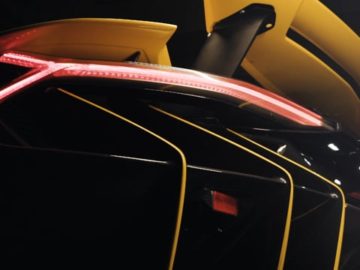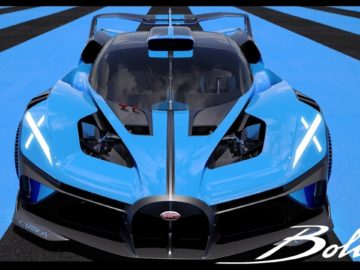
The real reason Audi races
[ad_1]
It’s strange, then, that for all these years we didn’t fully comprehend Audi’s stated approach to motorsport. And so we sat down with Dr. Wolfgang Ulrich, head of Audi Motorsport, and Chris Reinke, head of Le Mans Prototype development while in Austin, TX, for the Lone Star Le Mans and World Endurance Championship race for answers.
BMW, Corvette, Porsche, and Ferrari have healthy reputations, lucrative option sheets, and supported a robust trade in special editions by winning races. They have standalone racing divisions and they transfer the entire sheen of their racing endeavors to their road cars, a healthy part of what their customers buy into. Even though we know they improve their road cars with lessons learned racing, the belief is that they race because that’s just what they do; those brand names mean racing.

“Not one single euro is spent on a separate motorsports program.”
Yet Reinke said that for Audi, “Not one single euro is spent on a separate motorsports program. We [Audi Motorsport] are part of the Technical Department [of the road car company]. We are a pre-development lab for road-relevant technology.” As in, Audi isn’t racing out of core philosophy, it’s racing only to improve its road cars. That helps explain why Audi’s entire road car lineup doesn’t bask in the same racing aura as those other brands even though Audi has been racing since it was called Horch. It’s not a racing brand, it’s a technology brand. Said Ulrich, “Instead of components, look at technologies – not lights, but lighting technologies, not engines, but engine technologies, like injection pressure technology is the same from the race car to the road car.”
That’s nowhere near as exciting as, “Win on Sunday, sell on Monday,” but it is arguably much more practical. Quattro is the most obvious example of racing tech for the street. For a less obvious one, Reinke said, “Audi Motorsport developed codes for computational fluid dynamics, and then we’d run the calculations on the Technical Department computers at night. Now the Technical Department uses the codes created by the motorsports department” to hone the road cars. Those would be the same codes that help the 2017 Audi A4 achieve a coefficient of drag of 0.23, the second-best Cd on the road today.

Audi isn’t racing out of core philosophy, it’s racing only to improve its road cars.
That transfer is largely reversed when it comes to sports car racing. In response to question about the development of hybrid GT race cars, Reinke said, “It’s much the other way around – you want to use the road car to show how good the racecar is, so you want things looking like they do on the road. But it would also take a huge change in regulations to make it happen.” That’s why Audi stressed that the first-gen R8 racecar used 90 percent of the components from the road-going R8. Ulrich then advised “a little bit of patience, maybe,” suggesting that there’s something in the works – something we might or might not ever see in public.
On the subject of regulations, he added, “The hybrid challenges are about safety and cost for the teams. We as a manufacturer could handle it,” but the smaller GT racing teams might struggle to afford it and get the personnel to make the most of it. For now, Ulrich and Reinke said that safety systems in GT racing are a major part of the tech transfer.

Audi Versus Porsche
As to the future of the R8 E-Tron Quattro, we have questions. The competition in WEC has gotten, as Reinke said, “More intense, with more contenders,” but there are really only two contenders this year. After taking the WEC Manufacturer’s Championship last year, Toyota hasn’t won a race all year; its supercapacitor ERS has been fickle. Nissan isn’t racing yet, and even when it does we expect it to need at least a year to get up to winning speed – meaning a viable challenger in 2017.
That leaves Porsche and Audi. Audi drivers lead the WEC Driver’s Championship, but Porsche leads the manufacturer’s race and continues to look strong. What’s the benefit to having those sister companies seen as the only real contenders? Neither ultimately wins by repeatedly beating the other.

Audi drivers lead the WEC Driver’s Championship, but Porsche leads the manufacturer’s race and continues to look strong.
On top of that, and although Audi doesn’t make a big deal of it, you do get the feeling that they have issues with Balance of Power regulations. During a customer Q&A at the Circuit of the Americas, a guest asked why the diesel R18s had to refuel more often than the gasoline-powered competition, and Reinke began his answer with, “I don’t want to come here and attack the officials, but…”
And then, engineering a car to beat Porsche in the near term and allow a multi-year development track will require a new car. The R18’s current powertrain is a holistic unit, so in order to boost it aggressively “you’d have to look at the overall concept.” In response to a question about squeezing a lot more power out of the R18s flywheel system, like going to the eight-megajoule class instead of the current four, Reinke said, “Another manufacturer tried it at Le Mans and look what happened.” That’s in reference to Nissan, which uses a flywheel ERS in its GT-R LM Nismo, and we know how that turned out.

After 15 years at the top, Audi has nothing left to prove in WEC.
Will Audi Stick With Endurance Racing?
Ulrich answered a question of the rumors around Audi and Formula 1 with, “It’s good if they are there, they keep people distracted.” So, giving into distraction, at Geneva this year we heard rumor that Audi will get out of endurance racing and get into F1, because if Audi stays in the WEC it spends a whole lot of money to develop a brand new R18 to fight an intra-family war.
After 15 years at the top, Audi has nothing left to prove in WEC. A 2014 article suggested that if Porsche won Le Mans this year then Audi could leave endurance racing this year. The BBC reported again last week that Volkswagen is close to buying Red Bull and Audi “is the favorite” brand to get billing come 2018 when VW officially takes over. Speaking of 2018, Red Bull boss Dieter Mateschitz said that his teams are done with Renault at the end of this year, and Ferrari engines would be “a very acceptable solution for the next two to three years.” And if Audi wins in F1, it beats four other manufacturers – Mercedes, Honda, Ferrari, and Renault if Renault stays in the sport – none of whom are related.
It’s all conjecture at this point. Opposed to that, though, Reinke chided the idea of entering F1 because Audi wants to compete in series’ “with road-relevant technology.” But with more E-trons appearing at every auto show, a turbocharged V6 hybrid can’t really be that outrageous.

As for its COTA fortunes at Lone Star Le Mans, the team scored second and third places in the WEC race with the R18 E-tron Quattro in “hot-country spec” for the 98-degree ambient temperature, behind the leading Porsche. The Audis were the only cars to run without issue the entire event. In the IMSA Tudor race, the #48 Paul Miller Racing R8 LMS secured third at the finish after starting on pole and dropping to last place after being penalized for skipping a red light at the pit exit while getting around a stranded car.
Audi’s road car tagline is “Progress through technology.” When it comes to racing, even in the shorter challenges, Audi Motorsport seems to prefer “Progress through endurance.” For now.
[ad_2]
Source link









